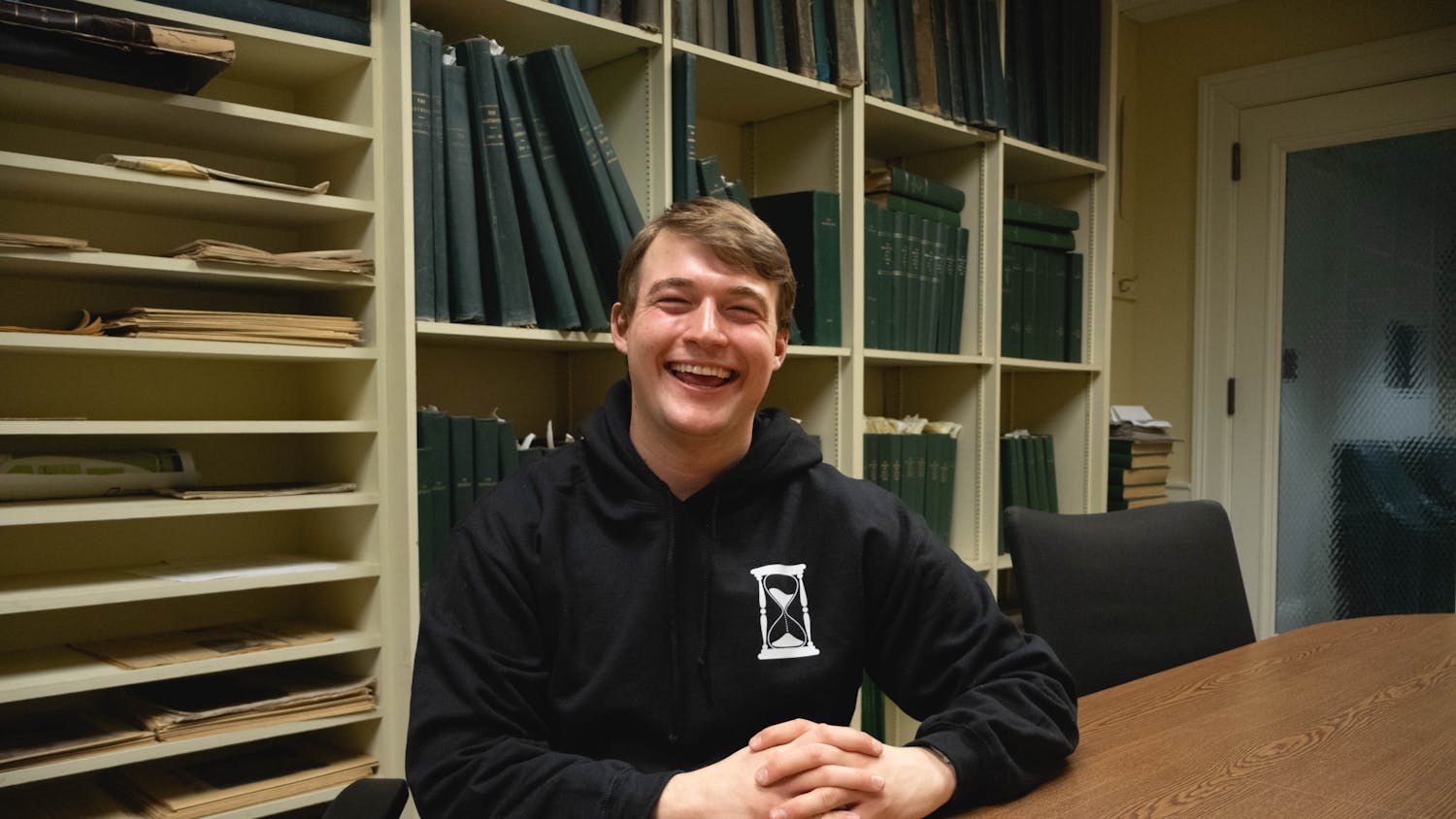Mary Kay Magistad, the woman behind the voice that so many Americans have heard from China via National Public Radio for several years, spoke yesterday in the Rockefeller Center.
More than 50 people crowded into the room to hear this distinguished journalist provide her up-to-date view on the political, economic and social conditions in China, and share personal anecdotes about her struggles as a reporter in a Communist country.Magistad opened the Beijing NPR bureau in 1996, and worked in the city and surrounding provinces for four years. While in China, Magistad covered many stories, including the bombing of the Chinese Embassy in Belgrade, which was hit by NATO warplanes in May 1999.
She described standing outside the embassy and approaching a protestor to get his opinion. When his companion discovered that she was an American reporter, he yelled, "repay blood debts with blood," said Magistad. She said she was quickly escorted away by a university student.
The turmoil surrounding the embassy bombing is not the only unrest Magistad has dealt with while in China.
When the Chinese government granted NPR permission to set up the Beijing bureau, the country was nearing violent conflict with the United States over Taiwan. Ironically, Magistad said the government warmly welcomed her to her new position despite the heated diplomatic dialogue between the countries.
"I can only imagine that [accepting NPR] was China's response to that dialogue," Magistad said, naming this episode an example of "Chinese pragmatism."
After the warm welcome, however, the Chinese official handed her a booklet listing the restrictions on foreign journalists, which Magistad said would basically mean she would have to wait for the Chinese press to provide stories.
Essentially, journalists must make a request to "un-named, appropriate authorities," whenever they want to interview anyone at any time, Magistad said.
However, Magistad said the regulations serve as "smoke and mirrors" to make the system seem impenetrable, when really the rules are usually used in extreme cases to prevent stories the government disapproves of.
"It's not what they expect foreign journalists to do, and it's not what they [the journalists] do," she said.
Still, most foreign correspondents must live in government housing, separate from the Chinese people, Magistad explained.
"They must assume their phones are tapped, their rooms are bugged," she said. She was lucky enough to live outside these compounds, though, because when she arrived in Beijing, the areas were full. This freedom helped her cover stories.
If a foreign journalist is caught illegally interviewing someone or writing a story the government dislikes, the journalist has to write a self-criticism, she said, but added that this happens very rarely and it is usually the only repercussion.
Only once in three or four years is a journalist kicked out of the country for a story, she said. In these cases of controversial stories and issues, the Foreign Ministry and the public security often conflict over how to deal with offenders, Magistad said.
Magistad said the most important issue she has covered is the growing discontent of the rural people. She reported that people are grateful that the party has lessened "micro-managing" of family life.
However, she said that "as the party is less relevant to people's everyday lives, it has to try harder" to maintain control.
She said she took a trip to a rural province and talked to a local farmer who angrily told her that he had to bribe workers to get access to water due to the corrupt local government. When a neighbor told the farmer to be careful of speaking freely to a reporter, Magistad said the farmer dismissed the warning, saying the worst that could happen is that they would kill him.
Magistad explained that it is dangerous for the government to have dissatisfied farmers who are willing to speak out. Eliminating corruption that leads to such unrest is the Communist party's current challenge, she said.
Now that she has returned to the United States, Magistad said it troubles her how little people here in the States are interested in foreign affairs.
She said many major print and television news productions are reducing the number of foreign correspondents, and working in foreign countries is often dangerous.
Magistad was brought to speak at Dartmouth in honor of another foreign journalist and Dartmouth graduate, Bernard Nossiter '47. Currently, she is a Nieman Fellow at Harvard University, a fellowship which "brings first-class journalists together in seminar format," according to Fowler.
Nossiter's son prefaced Magistad speech with a eulogy to his late father and a call for high quality journalism.



